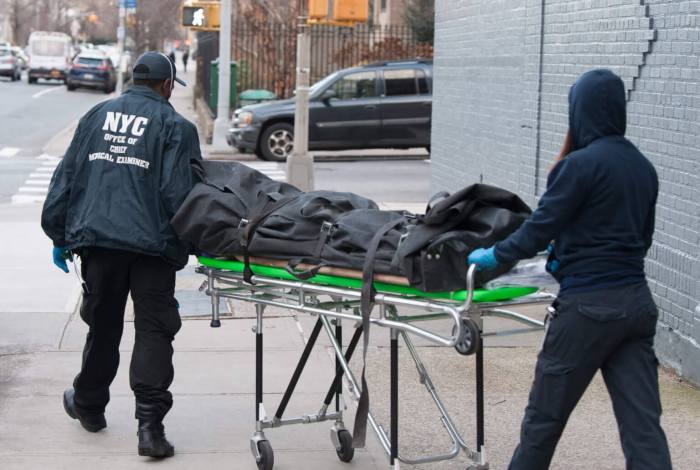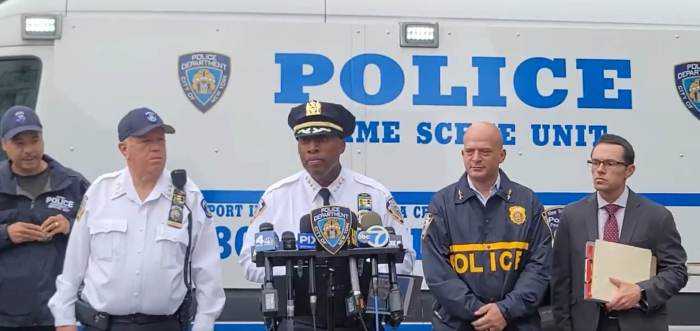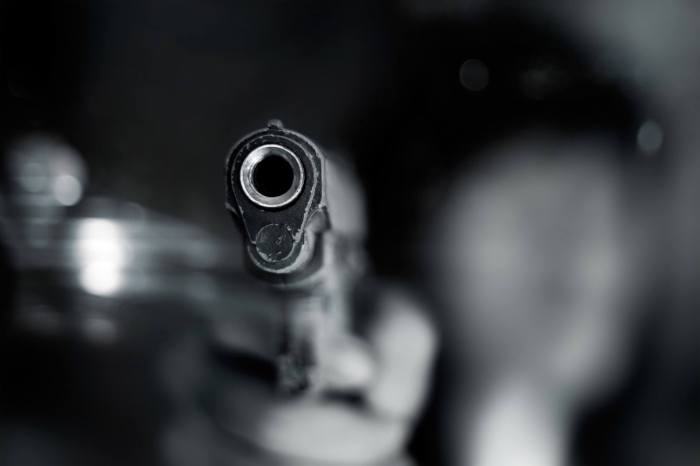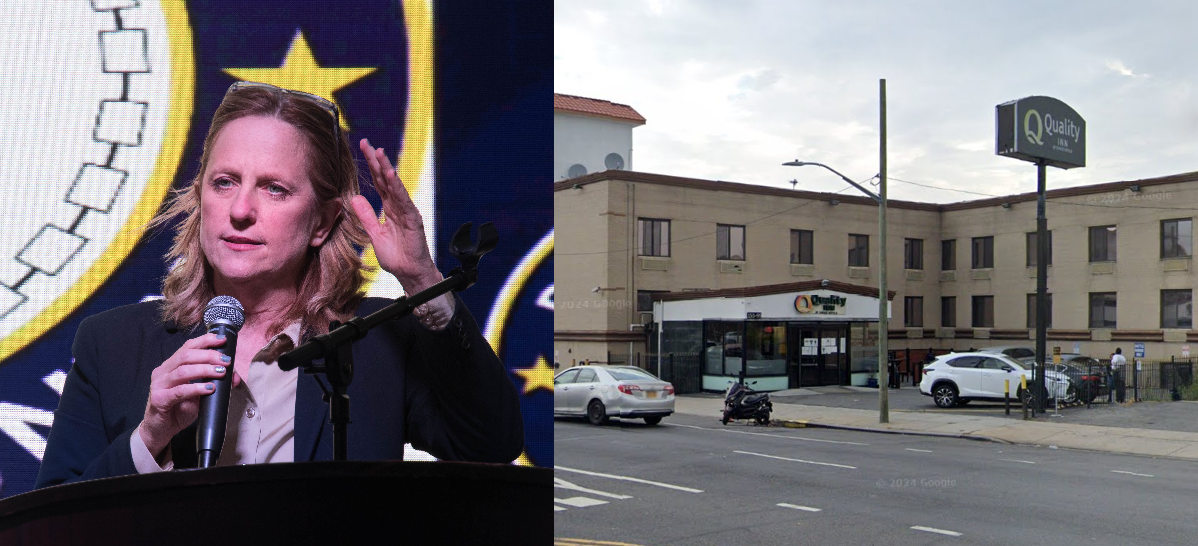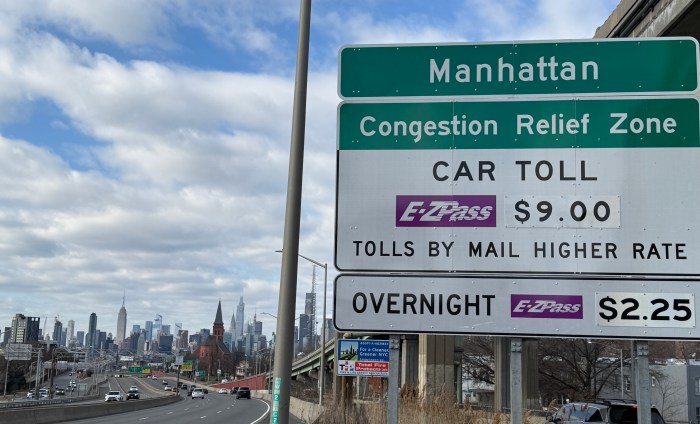As a part of Domestic Violence awareness month, City Hall drew attention to the cultural, financial and language barriers that put immigrant women at high risk for gender-based violence during a vigil on Tuesday.
The event spotlighted Turning Point, a southeast Queens-based organization empowering Muslim women and girls affected by domestic violence, whom Council Speaker Adriene Adams invited to the City Hall steps to hold the vigil instead of its usual spot in Jamaica’s Rufus King Park.
“We are here today to tell survivors they are not alone and their voices matter. We are here today to tell survivors we will keep showing up. Each and every one of you has a role to play,” Turning Point’s Executive Director Robina Niaz.
Both Adams and speakers from Turning Point’s numerous affiliated community organizations spoke to the efforts that the city has been making to overcome language and cultural barriers to addressing domestic violence across the city.
“In Pakistani and South Asian communities domestic abuse and divorce are still stigmatized,” said Erum Hanif, the executive director of APNA, a Brooklyn community center. “Many of these victims are recent immigrants, limited English proficient, do not have access to the outside world, do not have any support system — families or friends — outside the house of their abusers. They are completely unaware about their rights, immigration, the resources which are out there for them.”
Hanif described a call that she had received earlier in the day from a community member who had been living in an abusive situation for 11 years. The woman had sent Hanif pictures of open cuts on her leg and bruises on her body and asked for support to leave her abuser.
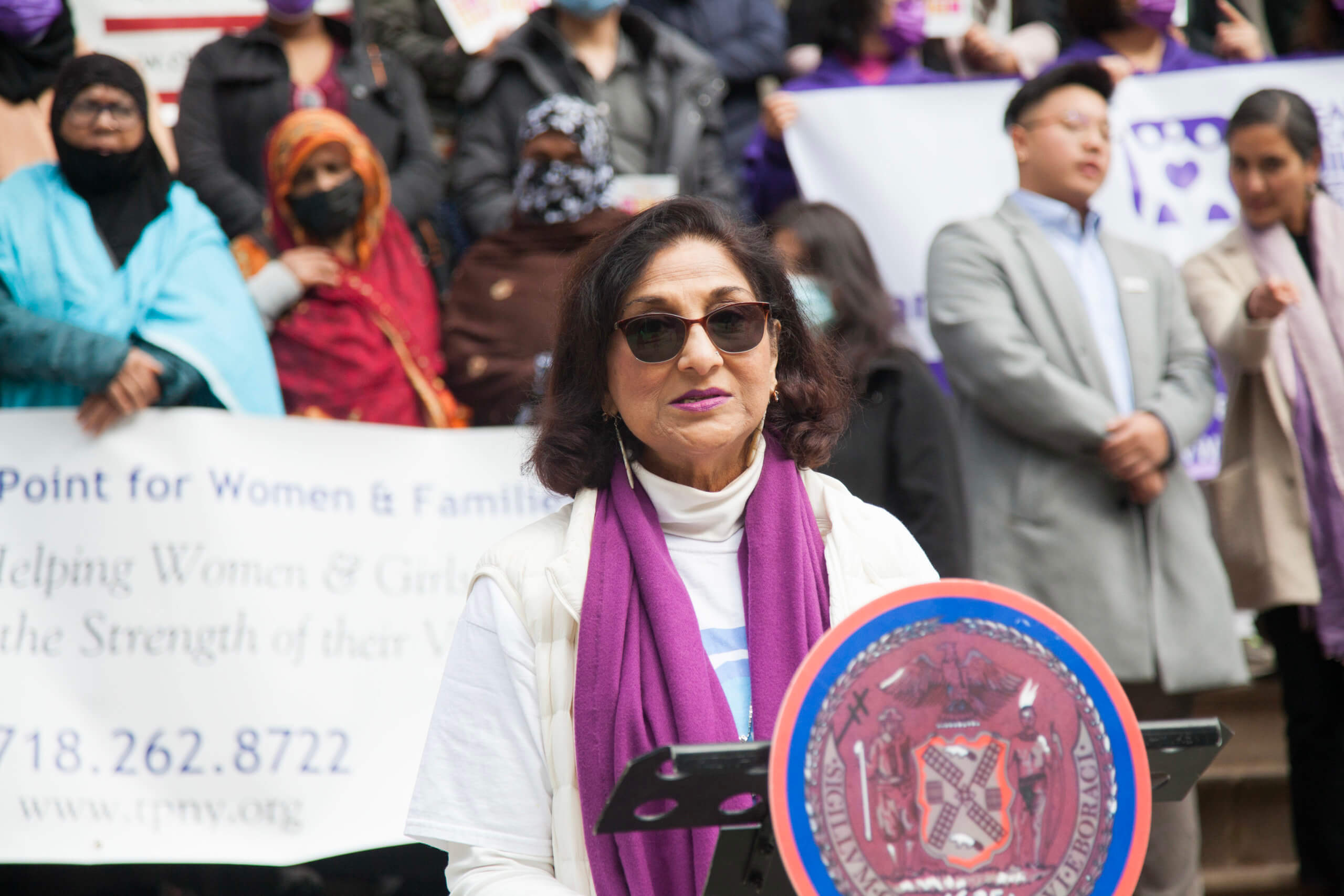
“This is the situation, and this is what we have to come up together as community representatives,” she said.
After Hanif, survivor Fatima Ahsan spoke about the challenges of her 30-year journey to try to get out of the domestic violence situation.
“It takes a long time to get out. A lot of people think it’s going to be easy to just walk out the door, but the shackles are keeping us back there… Our children, society, income, education and so forth,” Ahsan said.
It is situations like these, Adams said, that led the Council to make budgetary commitments to provide support for survivors of gender-based violence through social service organizations.
In last year’s budget Adams said the Council had allocated $11.5 million to the city’s programs that aims to Domestic & Other Violence Emergencies (DOVE) Program, which funds community-based organizations to provide case management, crisis intervention, referrals, counseling, and other services.
It also allocated another $530,000 specifically to organizations like Turning Point that assist young immigrants ages 16 to 24 who are affected by domestic violence.
Its other budget commitment included discretionary spending for each Council member to allocate $100,000 to essential safety and victim service programs and $2.4 million to establish the state’s first trauma recovery centers in New York City.
If you or someone you know is experiencing domestic violence and abuse from a partner, you can call the City’s 24-hour Domestic Violence Hotline, 1-800-621-HOPE.




